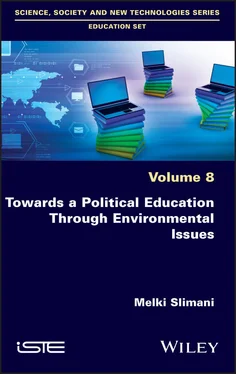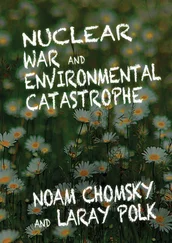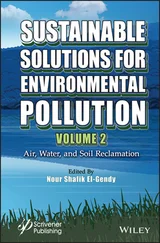According to Gachkov’s reading of Lefort, paradoxically, liberal politics through its insistence on individual liberties cannot provide decent protection for them because most of the people involved (the bourgeois) are depoliticized. This depoliticization, which is the consequence of the refusal of the bourgeoisie to participate in political debates because “their will is to take care only of their families and their advancement” (Gachkov 2012, p. 385; author’s translation), can provoke the appearance of totalitarian power sacrificing the lives of citizens based on a logic that “consciously confuses political power and civil society” (Gachkov 2012, p. 384; author’s translation). Thus, liberal politics (of which representative democracy is a component) makes democracy vulnerable to totalitarianism. In democratic society, where politics as an activity that questions the entire social domain, political power and civil society must coexist without domination in a social field where “power, law, knowledge are tested by a radical indeterminacy” (Gashkov 2012, p. 383; author’s translation). In contrast to a totalitarian society that wants to be certain of its future, political freedom in democratic society corresponds to the capacity of such a society to open up to uncertainty.
1.2. The political and the anti-political
According to Howard (2010), the history of human political thought can be traced back to two trends that originated from the first political experience of human society: democratic Athenian city.
The first trend constitutes a descending line of Platonic thought, itself interpreted as a reaction to the defeat of Athenian democracy. It is an anti-political trend that took shape at different moments in human social history. Christian theological thought fed this current, with Augustine and Luther as outstanding examples in the 5th and 15th centuries. Hobbes’ philosophy in the 17th century is representative of this trend in political philosophy, which culminated towards the end of the 18th century and during the 19th century in an anti-political project that reabsorbed politics into a logic of historical progression playing the role of a source of legitimacy anchored in a type of reasoning rooted in economics.
The second trend is a line of ideas descending from Aristotelian thought, itself based on the experience of Athenian democracy, which crossed Christian theological thought with Thomas in the 13th century and Calvin in the 16th century, as well as philosophical thought of the 17th century with Locke.
A third hybrid trend, exhausting its references from the experience of the Republic of Rome, manifested itself in the philosophical thought of Machiavelli (15th century) and Rousseau (18th century). It constituted a reference for the French Revolution and for the American Revolution. The latter invented the political form of a republican democracy, showing its resistance to the anti-political forms that quickly attenuated the French Democratic Republic by the institution of an anti-political project. The latter reigned during the 19th century until the outbreak of the war in 1914.
The 20th century was one of a new vitality of political thought through the installation of a conflict of interpretation of the democratic paradigm of political legitimacy. The debate was between new forms and orientations of totalitarian, liberal or social democracy.
In the remainder of this chapter, the political/anti-political trend in EDIs is explored through the following:
– a discussion of the conceptualization of the political field with its symbolic dimension (the political) and its formal dimension (politics) of Lefort by Gachkov and Blokker. This discussion makes it possible to specify a set of expressions covering the political field: “power”, “depoliticization”, “democracy”, “participation”, “citizenship”, “domination”, “justice” and “liberalism”;
– the classification 2of EDIs into six metathemes: “environmental politics and environmental change”, “environmental ethics”, “agrifood”, “sustainable development”, “environmental technologies and management” and “transitions”, to explore their political content via the Internet;
– the association of EDI metathemes with expressions from political/anti-political or politicized/depoliticized discussions in French and English in order to collect a relevant corpus on the Internet;
– a thorough reading of the collected corpus.
This chapter will help us to identify and characterize the political/anti-political trend of EDIs.
1.3. Environmental and development issues (EDIs) between the political and anti-political or politics and depoliticization: what are the trends?
1.3.1. Issues of environmental politics and environmental change
Environmental politics generally address water and air pollution issues, waste and ecosystem management issues and biodiversity protection issues. These issues are addressed in terms of political-legal regimes ( polity ), public policy ( policy ) or political action ( politics ). They also address issues of environmental change, which are changes in the climate system, hydrological systems of freshwater supply and agricultural food production systems. These changes represent large-scale risks to the sustainability of these systems. Voß and Bornemann (2011) propose an analytical and political framework for environmental governance. In this model, the authors distinguish three dimensions: a first dimension referring to the substantive problems and solutions of policy; a second covering the structural side of polity such as norms, procedures and political culture; and a third dimension of politics representing the actualized side of the policy process where actors with divergent views and interests interact.
1.3.1.1. Environmental justice: a category which cuts across environmental politics
Climate change is a contributor to environmental injustice. Indeed, the issue of climate change provides an opportunity to broaden the scope of environmental justice. The latter is not reduced to the issue of access to environmental resources nor to the problem of the unequal distribution of environmental costs. It involves a recognition of “plural modes of being in the environment” (Centemeri et al . 2016).
In the field of international environmental politics, several environmental issues seem to have become urgent, such as:
– the question of the degree of shared responsibility for climate change between rich and poor countries (Roberts and Parks 2007a, 2007b);
– the issue of ecological debt and the injustice of climate change combined with the effects of poverty and environmental degradation (Magrath 2010);
– the issue of intergenerational domination, which can stem from a violation of the freedom of future generations through climate change (Beckman 2016).
Environmental justice is also considered both as a category of collective action social movements (political action) and of action in public environmental policies as well as a political-legal category. The history of the idea of environmental justice is influenced by two contexts: the context of social mobilizations and the academic context (Fol and Pflieger 2010).
In the context of social mobilizations, the notion of environmental justice, which is derived from the concept of environmental racism, has given rise to a social movement that has adapted the frameworks of action of other social movements such as academics and political actors. The term “justice” has been preferable to “equity” by the social movements of environmentalists, which refers to broadly militant usage (Fol and Pflieger 2010). Related to this trend are:
Читать дальше












